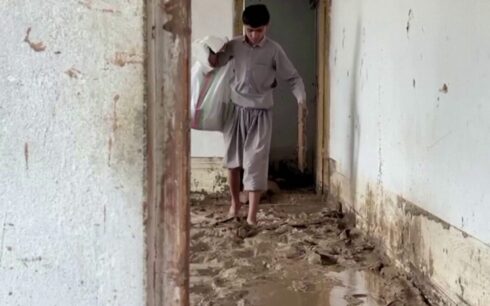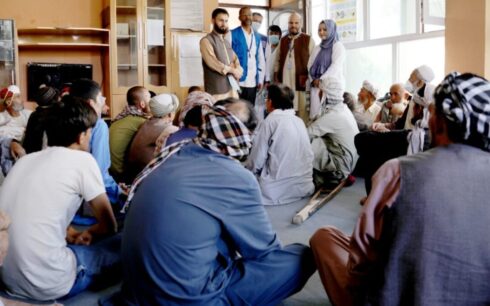KABUL, Afghanistan — Taliban has flogged nearly 150 people across various provinces in the past 44 days, according to data collected by Amu. The information, based on statements from the Taliban’s Supreme Court, covers corporal punishments meted out between May 1 and June 4.
The floggings have provoked strong reactions from Afghan citizens and human rights organizations, who condemn the Taliban’s harsh policies as violations of human rights. Legal analysts and human rights defenders argue that these actions starkly contrast with accepted human rights standards.
The Taliban describes those flogged as alleged criminals, justifying the punishments as part of their interpretation of Sharia principles. During the 44-day period, 150 people, including 14 women, were flogged. The province of Sar-e Pul recorded the highest number of incidents, followed by Kandahar, Paktika, Ghazni, Nimroz, Ghor, Kunduz, Badakhshan, Khost, Bamyan, Kabul, Paktia, Parwan, Kapisa, Panjshir, and Jawzjan.
On May 15, the Taliban flogged 63 people, including 14 women, in Sar-e Pul alone. Two days ago, 11 individuals were flogged in Kandahar, a stronghold of the Taliban’s leadership.
The Taliban’s Supreme Court claims these individuals were punished for alleged crimes such as adultery, theft, running away from home, abuse, and sodomy.
Public criticism of the Taliban’s repressive measures is growing. Many Afghans view these punishments as a continuation of the Taliban’s historical brutality. “The Taliban today is not different from the Taliban of the past. It used to flog people then, and it is doing the same now. The world should not remain silent towards the Taliban,” said a Kabul resident.
Another resident from Balkh echoed this sentiment: “The Taliban shows no mercy to anyone and flog people in front of everyone. This action of the Taliban is against human rights values, and the world should not remain silent towards all this oppression.”
Human rights activists argue that the Taliban’s treatment of citizens contradicts both human rights principles and Islamic teachings. “The Taliban use any means to achieve their goals and do not believe in justice,” said Maryam Marouf Arwin, a women’s rights activist.
Legal experts criticize the Taliban’s judicial system, claiming it lacks adherence to the rule of law. “There is no rule of law in the Taliban regime, and the Taliban court deals with people based on an incomplete interpretation of Sharia,” said Ainuddin Bahaduri, a legal analyst.
The international community has condemned the Taliban for imposing severe restrictions on women’s work and education, banning them from recreational activities, conducting public floggings, and threatening, detaining, and torturing journalists. Despite these criticisms, the Taliban has shown little flexibility in meeting international demands, including forming an inclusive government and upholding fundamental human rights.
The Taliban maintains that the rights of Afghan citizens are protected under Sharia law.





